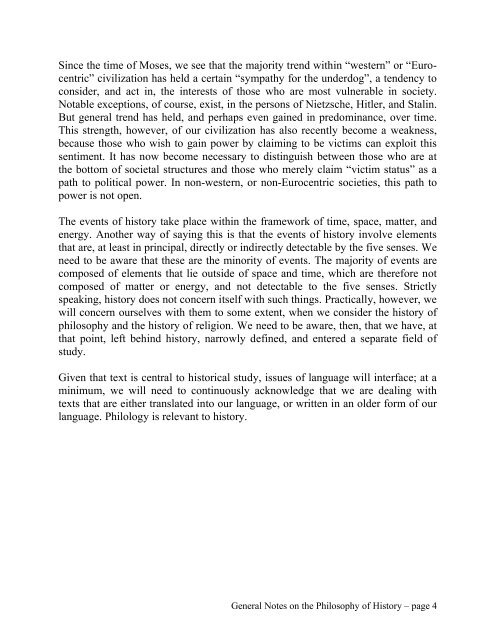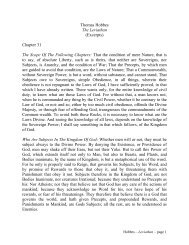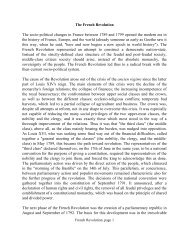General Notes about History
General Notes about History
General Notes about History
You also want an ePaper? Increase the reach of your titles
YUMPU automatically turns print PDFs into web optimized ePapers that Google loves.
Since the time of Moses, we see that the majority trend within “western” or “Eurocentric”<br />
civilization has held a certain “sympathy for the underdog”, a tendency to<br />
consider, and act in, the interests of those who are most vulnerable in society.<br />
Notable exceptions, of course, exist, in the persons of Nietzsche, Hitler, and Stalin.<br />
But general trend has held, and perhaps even gained in predominance, over time.<br />
This strength, however, of our civilization has also recently become a weakness,<br />
because those who wish to gain power by claiming to be victims can exploit this<br />
sentiment. It has now become necessary to distinguish between those who are at<br />
the bottom of societal structures and those who merely claim “victim status” as a<br />
path to political power. In non-western, or non-Eurocentric societies, this path to<br />
power is not open.<br />
The events of history take place within the framework of time, space, matter, and<br />
energy. Another way of saying this is that the events of history involve elements<br />
that are, at least in principal, directly or indirectly detectable by the five senses. We<br />
need to be aware that these are the minority of events. The majority of events are<br />
composed of elements that lie outside of space and time, which are therefore not<br />
composed of matter or energy, and not detectable to the five senses. Strictly<br />
speaking, history does not concern itself with such things. Practically, however, we<br />
will concern ourselves with them to some extent, when we consider the history of<br />
philosophy and the history of religion. We need to be aware, then, that we have, at<br />
that point, left behind history, narrowly defined, and entered a separate field of<br />
study.<br />
Given that text is central to historical study, issues of language will interface; at a<br />
minimum, we will need to continuously acknowledge that we are dealing with<br />
texts that are either translated into our language, or written in an older form of our<br />
language. Philology is relevant to history.<br />
<strong>General</strong> <strong>Notes</strong> on the Philosophy of <strong>History</strong> – page 4















